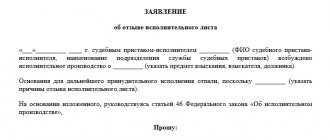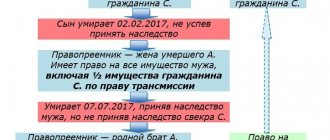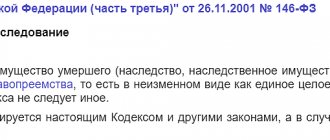A special type of defense for the defendant is a counterclaim.
In a civil case already initiated in court, the defendant files his claim against the plaintiff. An important condition for accepting a counterclaim is that the counterclaims must be related to the original ones. And will lead to the refusal to satisfy the demands of the original plaintiff. They must also be declared on similar grounds.
A counterclaim allows you to quickly and, importantly, objectively consider the dispute between the parties in court. As a sample of a counterclaim, you can take any statement of claim (for termination of a contract, for declaring a transaction invalid, etc.), in which you indicate that it has been filed specifically as a counterclaim.
:
Counterclaim
When to serve
In the court of first instance, a counterclaim can be filed before the court retires to the deliberation room (Article 137 of the Code of Civil Procedure of the Russian Federation) - in fact, at any time during the process, until the final decision is made.
In the appeal procedure, the defendant has the right to present demands only if the court proceeded to consider the case according to the rules of the first instance (Part 6 of Article 327 of the Code of Civil Procedure of the Russian Federation, position of the Supreme Court of the Russian Federation).
Lawyers recommend filing a counter-statement to the statement of claim as early as possible, preferably at the stage of preparing the case for trial (this is the very first court hearing). Otherwise, the consideration of the dispute may be delayed. In particular, the judge has the right to postpone the proceedings in order to provide the parties with time to prepare, taking into account the presentation of new demands and the disclosure of circumstances in the case (Part 1 of Article 169 of the Code of Civil Procedure of the Russian Federation, paragraph 10 of the Resolution of the Plenum of the Supreme Court of the Russian Federation No. 13 of June 26, 2008).
Consideration of a counterclaim
After accepting the counterclaim, the court considers all claims together. The parties and their procedural position do not change; the plaintiff remains the plaintiff, and the defendant remains the defendant. The court supplements the burden of proof of legally significant circumstances in the case and invites the parties to present their arguments on new circumstances that will need to be clarified.
When making a decision, the court indicates satisfaction (refusal to satisfy the claims) for both the original and the counterclaim. Usually it looks like this: “Satisfy Ivanov’s claims against Petrov. Collect... Refuse Petrov’s counterclaims against Ivanov” or “Satisfy Petrov’s counterclaims against Ivanov. Recognize... Refuse Ivanov’s claims against Petrov.”
However, situations are possible when the court rejects both the initial and counterclaims. Or partially satisfies the requirements of both parties. The only situation that is impossible is for the court to satisfy the demands of both the plaintiff and the defendant, since this would contradict the very essence of the counterclaim.
Where are considered
A party to a case submits a counterclaim in a civil proceeding within the framework of an already existing case - to the judge who is considering the original claim (Part 2 of Article 31 of the Code of Civil Procedure of the Russian Federation).
If the legal proceedings are before the magistrate, and the counterclaims are within the jurisdiction of the district court, it is still necessary to send the claim to the magistrates. If they accept the documents, they will transfer the case for consideration according to jurisdiction (Part 3 of Article 23 of the Code of Civil Procedure of the Russian Federation).
Send the paper document by mail or submit it to the office. To do this, it is recommended that you familiarize yourself with the rules for submitting documents, which are published on the website of the judicial authority.
For the electronic version, the general procedure applies - submission through your personal account on the website of the State Automated System "Justice".
How to file a counterclaim in 2021? Legal advice
A counterclaim is essentially a separate statement of claim. That is why the content of the counterclaim is not too different from the content of the original claim.
Are you planning to prepare a counterclaim yourself? In this case, be sure to include the following in your document:
- Name of the court hearing the main claim;
- Full name of the defendant filing the counterclaim, his postal address and telephone number;
- Information about the plaintiff;
- Cost of claim (if necessary);
- Civil case number;
- The essence of the plaintiff’s claims against the defendant;
- The essence of the defendant's claims in the counterclaim;
- The circumstances on which the defendant’s counterclaims are based;
- The defendant's claims;
- List of documents attached to the counterclaim;
- Date of filing the counterclaim.
counterclaim>>>
Requirements for a claim
There is an established procedure for filing a counterclaim in a civil case, which must be followed. So, the judge will accept it only if (Article 138 of the Code of Civil Procedure of the Russian Federation) a number of requirements are met.
- Such a claim is aimed at offsetting the original claim. For example, the plaintiff asks to recover a penalty for late payment for work, and the contractor presents a penalty for the delay in completing repairs. If the counterparty has already filed a statement of claim, the other party has the right to terminate its obligation by offset only by filing its own claim within the framework of the already initiated legal proceedings (see the position of the RF Armed Forces, the Supreme Arbitration Court of the Russian Federation). Other conditions required for credit must also be met.
- Satisfaction of the counterclaim and the original claim at the same time is permitted only in part, but not in full. For example, judges often side with citizens who have received a loan in disputes with banks, declaring clauses in contracts invalid and reducing the amount of debt.
- The claims are interrelated and their joint consideration will lead to a prompt and fair consideration of the case.
When establishing a pre-trial procedure for resolving a dispute, the judicial authority will accept the claim only if it is complied with. This conclusion follows from the interpretation of Art. 137 Code of Civil Procedure. In the absence of evidence of compliance with this procedure in the package of documents, the judicial authority has the right to return the counterclaim on the basis of clause 1 of part 1 of Art. 135 of the Code of Civil Procedure of the Russian Federation (Appeal ruling of the Novgorod Regional Court dated May 31, 2017 in case No. 33-1142/2017).
Conditions for accepting a counterclaim
There are some conditions for accepting a counterclaim. These include:
- a counterclaim is presented in opposition to the original one
- satisfaction of the counterclaim in full or in part excludes full satisfaction of the original claim
- claims are interrelated and their common consideration contributes to a more effective resolution of the dispute and the adoption of the right decision by the court
As a rule, the court will accept a counterclaim if it makes it impossible to satisfy the original claim. If the above conditions are not met, the court has the right not to accept the counterclaim for consideration. Moreover, the court’s ruling on this issue is not subject to independent appeal.
How to write
The Code of Civil Procedure of the Russian Federation does not specifically indicate how to write a counterclaim, since the rules for its preparation are standard for claims. The general rules established in Art. 137 Code of Civil Procedure of the Russian Federation. There are also specific features: the title of the document must indicate that it is being filed as part of another case and to the original plaintiff. It is worth indicating the case number and the name of the judge.
Include in the claim the information provided for in Part 2 of Art. 131 Code of Civil Procedure of the Russian Federation. We also recommend indicating what the conditions are for filing a counterclaim.
The signature and date on the form are required. A representative is recognized as authorized to take this action only if it is expressly stipulated in his power of attorney (Part 4 of Article 131 of the Code of Civil Procedure of the Russian Federation).
Example of a counterclaim
Filing a counterclaim in civil proceedings: main features of the procedure in 2021
In the text of Art. 137 of the Code of Civil Procedure of the Russian Federation stipulates the right of the defendant to file a counterclaim against the plaintiff - for joint consideration with the original claim.
Let us note the main features of this procedural procedure:
The main purpose of filing a counterclaim is to protect the interests of the defendant;
At the same time, the role of the court in relation to the acceptance of a counterclaim is active, not passive;
That is, the judge is obliged to explain to the defendant his right to file a counterclaim and offer to present evidence in support of his objections;
However, it must be borne in mind that the current legislation of the Russian Federation prohibits filing a counterclaim in the case of the return of a child or the exercise of access rights;
If several defendants are involved in the case, each of them has the right to independently file a counterclaim against the plaintiff;
As a general rule, any counterclaim is filed in the court considering the main claim;
The filing of a counterclaim is carried out according to the general rules for filing a claim, provided for in Chapter. 12 Code of Civil Procedure of the Russian Federation;
The defendant may file a counterclaim at any time after the main claim is accepted and before the end of the proceedings in the court of first instance.
Grounds for refusal to accept a claim
The grounds for refusing to accept a claim are determined by Article 127.1 of the Arbitration Procedure Code of the Russian Federation.
These include:
- Lack of jurisdiction. That is, when the application by its nature cannot be considered by the arbitration court.
- The decision on the dispute has already been made and entered into legal force.
- There is a decision made by the arbitration court.
The refusal is formalized in a separate definition. Such a decision may be appealed. The refusal makes it impossible to bring claims against the plaintiff on the same grounds.
Reasons for returning
An exhaustive list of reasons for returning a counter-statement is specified in Article 129 of the Arbitration Procedure Code of the Russian Federation.
This can happen if:
- the case is not within the jurisdiction of the arbitration court;
- claims are considered in the order of writ proceedings, that is, without the direct participation of the parties;
- the initiator withdrew his application before its consideration;
- the reasons why the consideration of the application was suspended were not eliminated;
- the initiator did not comply with the claim procedure for resolving the dispute, if such is mandatory.
Upon return of the application, the court issues a ruling. The return of the application does not prevent the re-submission of the counterclaim.
VS: A counterclaim can be considered a set-off of counterclaims
On August 16, the Supreme Court issued a ruling in which it indicated that the counterclaim can be considered a statement of offset of similar claims within the meaning of Art. 410 of the Civil Code of the Russian Federation.
In 2010, JSC SIA INTERNATIONAL LTD (hereinafter referred to as the company) entered into supply agreement No. 1, under which the company, being the buyer under the agreement, was late in paying for the goods.
Five years later, the parties entered into Agreement No. 2, according to which the supplier was the company, and the buyer was the company. By an additional agreement to this agreement, the parties stipulated that all payments for supplies are made by offsetting counterclaims of the same type, and the company’s obligations under the first agreement terminate from the moment the company receives the goods under the second agreement.
Already after two weeks from the date of signing the additional agreement, the company, being the seller under the first agreement, filed a lawsuit to collect the debt and penalties under agreement No. 1. The company, deprived of the opportunity to submit an application for set-off, filed a counterclaim to collect the debt under agreement No. 2.
As a result, using offset of similar counterclaims, the court recovered 11.5 million rubles from the company in favor of the company. debt and 12.2 million rubles. penalties (case No. A40-242406/2015) for the period until May 12, 2021.
The appeal overturned this decision in terms of debt collection due to the company's partial repayment of the principal amount. 10.9 million rubles were recovered from the defendant in favor of the plaintiff. debt, the rest of the decision was left unchanged. The cassation agreed with the appellate court.
Next, the company again appealed to the Moscow Arbitration Court with a claim against the company to recover 11.3 million rubles. penalties accrued from May 13, 2021 to the date of the appeal’s ruling on a court offset for the amount of the principal debt in the previous dispute, as well as for the amount of debt reduced by the court’s offset and three payments from the company.
The plaintiff believed that the offset made by the court terminates obligations only at the moment the decision enters into legal force.
The court agreed with the plaintiff and collected a penalty from the company in the amount of 8.3 million rubles. The appeal and cassation upheld the decision.
The courts proceeded from the fact that the defendant’s obligations ceased on the day the court decision entered into legal force, which carried out the set-off. In doing so, they were guided by Art. 330, 410, 506, 516 of the Civil Code of the Russian Federation, clarifications of the Information Letter of the Presidium of the Supreme Arbitration Court of the Russian Federation dated December 29, 2001 No. 65.
The company filed a cassation appeal with the Supreme Court, in which it referred to the fact that counter and homogeneous obligations of the parties terminate when the later of them becomes due. According to the applicant, at the beginning of the period for accrual of penalties for the current dispute, the obligations were partially terminated by offset due to the last delivery of goods to the company in February 2021.
In its response to the complaint, the company submitted objections that after the dispute was referred to the court, the parties lost the right to set-off in the general manner; The court has already offset the original and counterclaims.
The Judicial Collegium for Economic Disputes of the Supreme Court of the Russian Federation in its Determination No. 305-ES18-3914 did not agree with the lower courts.
The court with reference to Art. 410 of the Civil Code of the Russian Federation indicated that a counterclaim to set off the initial claims is, in fact, the same expression of the will of the party to set off, which is formalized in the form of a statement of claim. Changing the form of such an expression of will (filing a claim instead of an application to the debtor or creditor) should not lead to a change in the moment of termination of the obligation, since the grounds for offset (the presence of counterclaims of the same type and the deadline for their fulfillment) remain the same. Otherwise, “the material moment of recognition of the obligation under the contract as terminated is made dependent on the procedural features of the resolution of the dispute,” which the party can no longer influence.
The Supreme Court noted that the accrual of a penalty for the amount of a claim repaid by offset for the period from the due date for fulfillment of a later obligation until the filing of an application for offset (and even more so before the court decision by which the offset was made) does not correlate with the purpose of the penalty as liability for improper fulfillment of an obligation (Article 330 of the Civil Code of the Russian Federation).
The court indicated that the moment of termination of the obligation by offset, provided for by the parties in the additional agreement to the second contract, was also determined by the day the company received the goods under the second contract. Having signed this additional agreement, the company filed a claim within two weeks to collect the debt from the company under supply agreement No. 1, depriving it of the opportunity to submit an application for offset.
Resolution of a dispute in court should not create for the company an advantage in accruing a penalty before the judicial act comes into force in an amount exceeding its liability under the second agreement without taking into account counter homogeneous obligations (clause 4 of article 1 of the Civil Code of the Russian Federation).
The Supreme Court of the Russian Federation rejected the company’s reference to the prejudicial significance of the courts’ conclusion in a previous dispute about the legality of charging a penalty for the entire amount of debt, since the legal conclusions of the courts cannot be considered as circumstances that do not require proof.
According to the Court, the accrual of a penalty for the entire amount of debt, without taking into account the partial termination of obligations, contradicts the norms of the Civil Code of the Russian Federation, the legal position set out in the Information Letter of the Presidium of the Supreme Arbitration Court of the Russian Federation No. 65 and the corresponding agreement of the parties.
As a result, the case was sent for a new trial.
Leading legal adviser of the department of tax security and legal protection of KSK Group, Artem Platonov, believes that the Supreme Court clearly and unambiguously resolved the key issue for the present dispute regarding the moment of termination of obligations by offset.
The expert noted that the Court informally approached the issue of the form of expression of the will of the party, and called it fair that it could also be drawn up in the form of a statement of claim. “Thus, attention is focused not on the form as such, but on the content,” he explained.
According to Artem Platonov, the position of the Supreme Court set out in the document correlates with the established judicial practice: “The definition should serve as an additional signal to lower courts about the inadmissibility of a formal approach to resolving disputes, regardless of their subject.”
Scientific consultant of the Research Center for Private Law named after. S.S. Alekseeva Radislav Repin believes that the definition of the Supreme Court touches on two points.
Firstly, the Court confirms the legal position, which was reflected back in 2001 by the Presidium of the Supreme Arbitration Court in Information Letter No. 65. According to this position, the offset operates with retroactive force: it is considered completed from the moment when, in principle, it could first be declared.
According to the expert, this decision does not follow from the law, but is the fruit of judicial law-making based on foreign approaches - primarily German. Radislav Repin believes that there are no dogmatic or political and legal grounds for the retroactivity of the offset. In addition, in his opinion, such a solution is counterintuitive for turnover. He is also Fr.
Secondly, according to the expert, the Supreme Court, like the Presidium of the Supreme Arbitration Court, believes that offset against a claim submitted to the court is permissible only through a counterclaim. “This approach is also not based on the law and has no basis. This “imposed procedural form” excludes the possibility of offset by a third party (clause 4 of Article 313 of the Civil Code) and offset by the debtor upon assignment of a claim (Article 412 of the Civil Code), which contradicts the maxim “the assignment should not worsen the debtor’s position,” concluded Radislav Repin .
Drawing up counterclaims: on your own or involve a lawyer?
We at the Legal Guarantee Law Office believe that it is better to entrust the drafting of procedural documents to professionals - those who are constantly in court, protect interests, and know the intricacies. Especially when it comes to claims in arbitration court.
Thus, thanks to a well-drafted counterclaim, our principal reimbursed the cost of low-quality goods under the supply agreement.
We have prepared a case for you to tell you how it was
The lawyers of our Bureau have drawn up a counterclaim. The court satisfied it in terms of recovery in favor of our principal of 844,079 rubles. 49 kopecks cost of delivered low-quality goods, 138,025 rubles. 50 kopecks losses, total 982,104 rubles. 99 kopecks
View document
Our Law Office employs lawyers who specialize in arbitration disputes. We provide a full range of services - from drawing up a claim to representation in court, comprehensive legal support (if we are talking about business).
Leaving without consideration or termination of proceedings
A counterclaim will not be considered in the following cases:
- The court has a dispute pending on the same grounds.
- The mandatory claim procedure for resolving the dispute was not followed.
- A legal dispute arose.
- The claim must be adjudicated in the bankruptcy case.
- There is an agreement between the parties to resolve the dispute by arbitration.
- The application does not contain the signature of the initiator; it was signed by a person who does not have the right to do so.
- The initiator failed to appear in court again, did not report the reason for his absence, and did not file a motion for consideration without his participation.
Production is terminated if:
- The case is not within the jurisdiction of the arbitration court.
- The decision on the same dispute, including that of the arbitration court, came into force.
- The initiator abandoned his demands.
- The participant in the process is liquidated as a legal entity or individual entrepreneur.
The consideration is also terminated if there is a settlement agreement.
A counterclaim in arbitration proceedings is a guarantee of protection of the rights of the defendant. The application procedure in this case has no distinctive features. It is necessary to prepare a counter-application, attach documents confirming the validity of the application and pay the state fee.








